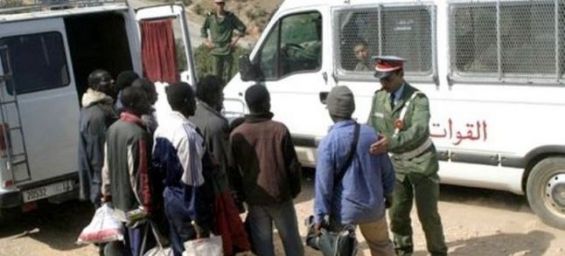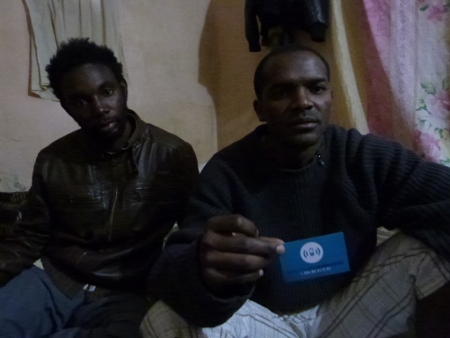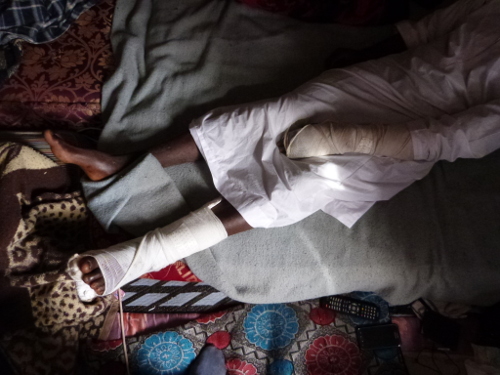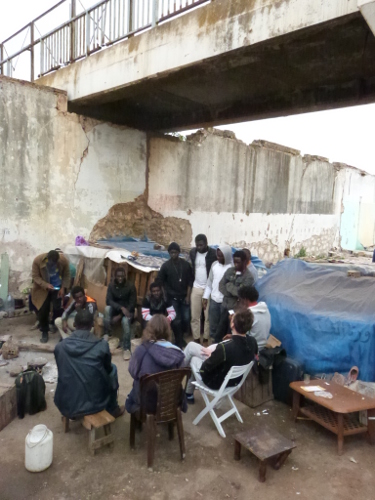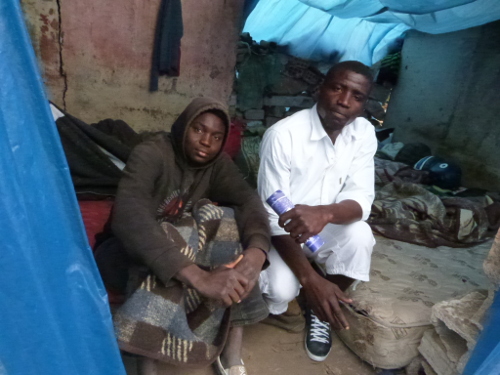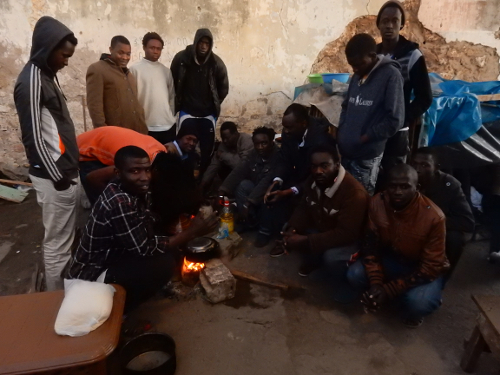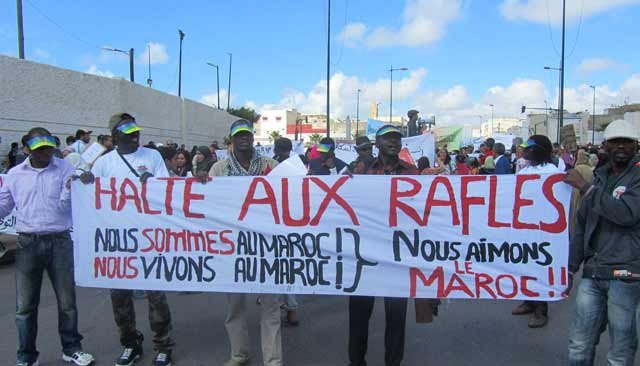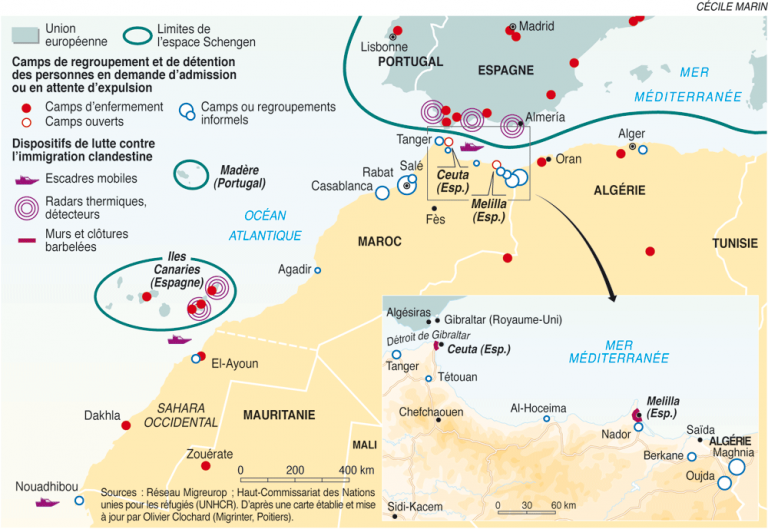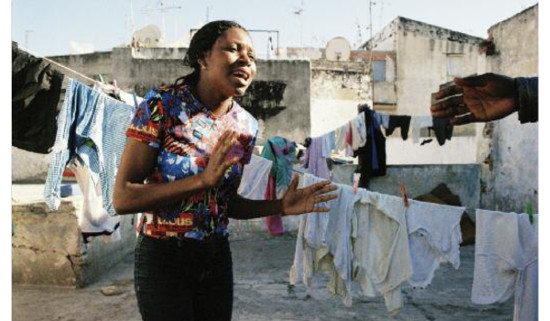Meer info over WatchTheMed Alarmtelefoon
27 mei 2017
Persbericht van WatchTheMed Alarmtelefoon in reactie op de situatie op de centrale Middellandse Zee en de tragische gebeurtenissen gisteren 26 mei 2016.
Door de EU ingecalculeerde en gemonitorde doden op de Middellandse Zee
Gisteren, donderdag 26 mei, duurde het meer dan vier uur voordat reddingsschepen arriveerden. Vier uur vol zorgen en pogingen de angstige mensen aan boord van een overvolle houten boot te ondersteunen. In een SOS telefoongesprek heeft ons WatchTheMed Alarmtelefoon shift team om 6:21 uur de GPS-coördinaten aan het Italiaanse Maritiem Reddings Coördinatie Centrum (MRCC) in Rome doorgegeven. Kort daarvoor kregen wij een noodoproep vanaf een satelliet telefoon ongeveer 70 km ten noordoosten van de Libische plaats Zuwara. De beller informeerde ons over de boot waar hij op zat en een tweede boot waarmee ze samen waren, elk met 500 mensen, onder wie een groot aantal Syrische en Iraakse vluchtelingen. Om 10:31 uur naderde eindelijk redding, maar een uur eerder was de tweede boot al gekapseisd, binnen gezichtsveld van de eerste boot. We hebben contact met de boten gehad van 6.21 tot 10.31 CET, daarna hebben we het contact verloren. Om 9.20 hoorden we via de contactpersoon op de boot over een groot aantal overledenen, verdronken in de zee. Tot nu toe is het onduidelijk hoeveel mensen zijn overleden. MRCC Rome heeft in hun dagelijks rapport een gekapseisde boot en 96 overlevenden gemeld. Dodelijke slachtoffers werden niet genoemd terwijl die er duidelijk in grote aantallen zijn. De particuliere reddingsboot Sea-Watch*, die aan het begin van de middag op de noodplek aankwam, vertelde ons dat ze veel dode lichamen aantroffen en de levende mensen er tussenuit hebben gered.
Ingecalculeerde sterfgevallen
In de afgelopen drie dagen zijn er weer duizenden vluchtelingen en migranten vanaf de Libische kust vertrokken op overvolle boten op weg naar Sicilië: Ongeveer 2600 mensen op dinsdag, 3000 op woensdag en 4000 gisteren, donderdag. Niemand kan nog beweren hierover verrast te zijn, zeker niet degenen die verantwoordelijk zijn voor het migratiebeleid van de EU. Maar ze weigeren de fatale visumregeling af te schaffen en veilige routes mogelijk te maken. Integendeel: de Balkanroute die migratiebewegingen met veel strijd vorige zomer geopend kregen is met veel geweld afgelopen februari hermetisch gesloten. Onder de slachtoffers van gisteren in de centrale Middellandse Zee zijn Syrische en Iraakse vluchtelingen die waarschijnlijk als ze gekund hadden via de Balkanroute hadden gereisd in plaats van te kiezen voor de langere er gevaarlijkere route via Libië naar Italië. Door de sluiting van de Balkanroute en de inhumane EU-Turkije deal worden vluchtelingen die aankomen in Griekenland gevangen gehouden op de Griekse eilanden met de dreiging naar Turkije gedeporteerd te worden. Terwijl diegenen die zich op het Griekse vasteland bevinden in de ellende achtergelaten worden zonder enig perspectief het land binnenkort te kunnen verlaten en continue met valse informatie en angstaanjagerij geconfronteerd wordend. Deze politieke veranderingen forceren vluchtelingen de veel gevaarlijkere route via Libië te nemen.
Gemonitorde sterfgevallen
Al bijna één jaar nu probeert de militaire operatie EUNVFOR MED / Sophia de centrale Middellandse Zee te controleren tussen Libië en Italië. De focus van deze operatie ligt in de bestrijding van de zogenaamde smokkelnetwerken. Deze ‘smokkelaar-jagers’ zijn uitgerust met high-tech apparatuur, de zone voor de kust van Libië is een van de best bewaakte maritieme plaatsen ter wereld. Hoe moeilijk kan het zijn om een klein surveillance vliegtuig elk uur langs deze bekende migratie route te sturen om vluchtelingenboten te lokaliseren en mensen direct te redden? In plaats daarvan zijn het opnieuw de Italiaanse kustwacht, particuliere initiatieven en NGO’s die zich tot het uiterste moeten inspannen om verlichting te bieden op de rampplekken en te redden wie er te redden valt. Als ze vervolgens overlevenden naar Sicilië vervoeren ontbreken daar simpelweg capaciteiten voor voedsel, onderdak en humane procedures voor bijvoorbeeld gezinshereniging.
Situaties zoals gisteren zijn blijkbaar gewenst door de verantwoordelijke autoriteiten: het sterven op zee gaat door. Ze zijn te stoppen, natuurlijk heeft de welvarende en technologisch geavanceerde EU hier de capaciteiten en kennis voor, maar er wordt moedwillig voor gekozen deze niet in te zetten. Rampen worden zolang mogelijk verborgen gehouden, kleiner voorgedaan of gebagatelliseerd om nieuwe publieke protesten te voorkomen.
Wij roepen het uit, nog eens en keer op keer, over de massa’s doden aan ‘onze’ grenzen de afgelopen 20 jaar, en de doden van gisteren. Als er open en veilige migratieroutes waren dan zou niemand moeten sterven op zee. Het sterven op zee is geen natuurramp die ons overkomt en ook geen toeval. Het is in feite de berekende uitkomst van de EU grensbewaking en visumregeling. Het sterven op zee is door de mens gemaakt en zou morgen al de geschiedenis in kunnen verdwijnen als een duister hoofdstuk. Door de grenzen te openen en toegang tot de veerboten te realiseren.
De lange zomer van migratie in de Balkan heeft aangetoond dat zodra grenzen open zijn er geen ‘smokkelaars’ meer zijn. Men betaalt alleen hoge bedragen en neemt gevaarlijke wegen wanneer men daartoe gedwongen wordt door Frontex en co.
Een wereld zonder grenzen is mogelijk en zowel Frontex als ook de ‘smokkelaars’ zouden dan zijn verdwenen.
Daarom zeggen zeggen wij: Ferries niet Frontex
WatchTheMed Alarmtelefoon (27.05.2016)
WTM Alarmtelefoon biedt onafhankelijk ondersteuning en solidariteit aan migranten die de Middellandse Zee oversteken op weg naar de EU.
Meer info over WatchTheMed alarmtelefoon project:
http://alarmphone.org/en/
http://watchthemed.net/
https://twitter.com/alarm_phone
* Meer info collega organisatie Sea Watch:
http://sea-watch.org/nl/
****************************************************************
Attachment:
Excerpts from the WTM-AP log book entries:
2016_05_25-CM-two boats in distress, direct call
Number of the boat: 0088216….376
5:25am, we received a direct call from a Thuraya number. The person speaks Arabic so we cannot understand. All we can hear is “Libya” and “Italy”. It sounds like they might be on a boat as there are engine sounds in the back.
5:34am, Our translator gets back to us and says that the man was talking about 2 big boats that had left from Libya. Apparently they called the Italian coastguards but they were not responding. And
apparently he spoke of 1000 people on the boats!
5:40-5.50: We try to call the Thuraya number in different ways but cannot reach them. In between we checked their Thuraya credit and it was good, over 70. We checked again a few minutes later and it had gone down to 69.71.
6.10am: We call the Italian coastguards and we pass on the Thuraya number. He checks and then says that they have the same number. Apparently they were called by the boat but had the same problem that we had: they could not establish their position.
6.16am: their credit has minimally decreased, 69.22 now.
6.17am: We reached the man on the boat. We try to give him instructions on how to find the GPS position on Thuraya but the call was cut off. In the meantime, credit has gone down to 62.77
6.20-6.40: We receive more information from the boatpeople:
26.21am: We received their coordinates: N033 Deg 018’014.242 E012 Deg 29’037.940. The man is in panic and says they are about to sink. There are two boats, one boat is in a bad condition. The boats are metal boats (but later it became clear that they were wooden boats).
6.29-6.35am: We call MRCC Rome again and pass on the new details and the coordinates which they take.
6.51am: Credit has gone down to 56.32
6:58: We send an Email to MRCC and others with all details.
7:56am: the people on the boat called us again and we asked them to send us an update of their position. we receive the new position at 7.58: N33 23’57,062; E12 29’45.553
8:00am: we called MRCC Rome again, we provided them with the new coordinates.
8:12am: we sent an email to MRCC Rome and all the contacts we have, asking for urgent help and providing them with the new coordinates
8:19am: we received new GPS coordinates: N033 Deg 025’024.298 E012 Deg 029’052.131
8:21am: Credit on the phone of the migrants on the boats is 41
8:23am: the people on the boats called and told us, one of the big wooden boats is cracking and water started to fill the boat in the under level (the boat has obviously two levels), the people are trying desperately to empty the boat from water. in total there are around 1030 people on the three boats, the boats are made of wood. one of the big boats is dragging the other, on the small boat are 30 people. NEW: there are now three boats, because the two big boats, which were our case already the whole morning, we’re crossing a third, small boat with migrant persons, and they continued to go on together, one big boat towing the two other boats!!!!
08:30am: we called the Italian Augusta Offshore company because their commercial boat ASSO VENTIQUATTRO IMO 9235294 is really close to the boats in distress. They provided us with their operations department number which could give us the number of the ship Asso Ventiquattro, but the operation center opens not before 9am, so we have to wait…
8:35am: Credit from the Thuraya-phone on the boat is 39.5
8.35am: we tried calling another boat that is close called MInerva Zen (there main center is in Ukraine), but the call didn’t go through
8.40am: we called the Malta coastguard. they already know about the boats and are working on the case. we updated them. they have another 17 cases or so they are working on. they said they are doing their best. the operator was very stressed on the phone.
8:45am: the people on the boat are calling, they told us one of the boats just sank, 500 people are in the water and many already died …
8:47am: the boat people confirmed that we should call Libyan coast guard, we tried to reach the Libyan Coast Guard. We also decided to call the Tunisian Coast Guard and explained them the distress situation, gave them all the infos we have.
309:00am: we call the operational center of the Augusta Offshore Company and explain the situation. They say that their ship ASSO VENTIQUATTRO already knows about the case (they were contacted by MRCC rom) and that it is on his way there now, going to help rescuing the people on the sinking boat
9.18am: obviously a lot of different “players” are informed about the case (MRCC Italy in Rome, Malta, Sea-Eye, Sea-Watch, private ships…) and going to help, but until now the migrants didn’t see any ships close to them.
9.20am: contact to the people on the boat: a lot of people already dead, our contact on the boat saw people drowning. They asked us where they should heading to, they’re 100 km away from Sabratah on the Libyan Coast and try to head in direction of Lampedusa. One big boat is broken, the second big Boat is now leaking too, the small boat is fine, but already full of people
9:28am: credit of the Thuraya-phone on the boat: 33
9.29am: we informed everybody, staying in touch with the people on the boat, but for the rest we’re helpless
9.48am: we sent an SOS email with updates on the sinking boat:
Hello,
Thanks to everyone who is involved, we are aware that there are more than 10 boats, so thank you for your efforts. We have received unfortunate information that one of the boats sank already around the position N033 Deg 023’057.062 E012 Deg 029’045.553. A lot of people died. But for sure, there are people who know how to swim and most probably they can be saved and pulled from the water.
Thank you,
xy Watch the Med Alarm Phone
09:56am: We called the Libyan coast guard, they were friendly, maybe because we were talking in Arabic with them, they got all the info and will help as soon as possible
10:00am: no answer from the people on the boats
10:03am: the people on the boats saw a ship, they estimate the distance 15 minutes away from them, but then the ship disappeared. we asked for new coordinates and urged them to use whatever objects they have that can reflect the light of the sun and use it in all direction to help
ships spot them
10:05am: Since a long time we’re watching the “Minerva Zen”, the Ship from the ukrainian company, on Vesselfinder.com cruising around specific coordinates: N33 12 E12 42, looking like searching for
something. This zone is close to the boat-people, but not exactly their latest coordinates we have. “Asso Ventiquattro”, the italian Ship, is obviously also cruising more or less around the same area like the Minerva Zen
10:06am: credit of Thuraya phone on the boat is 22.6;
10.15am: the people on the boat do not answer
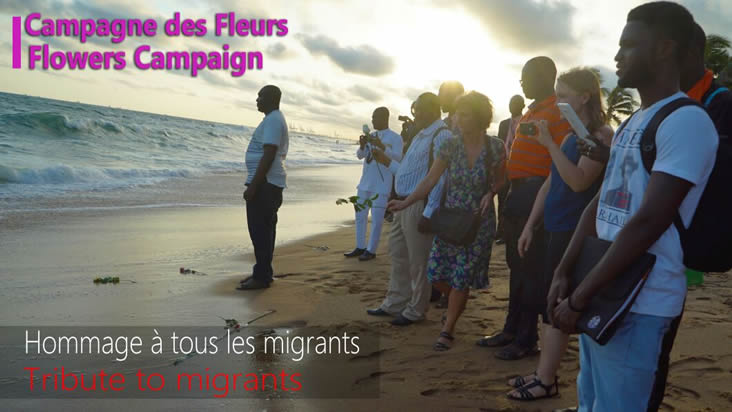
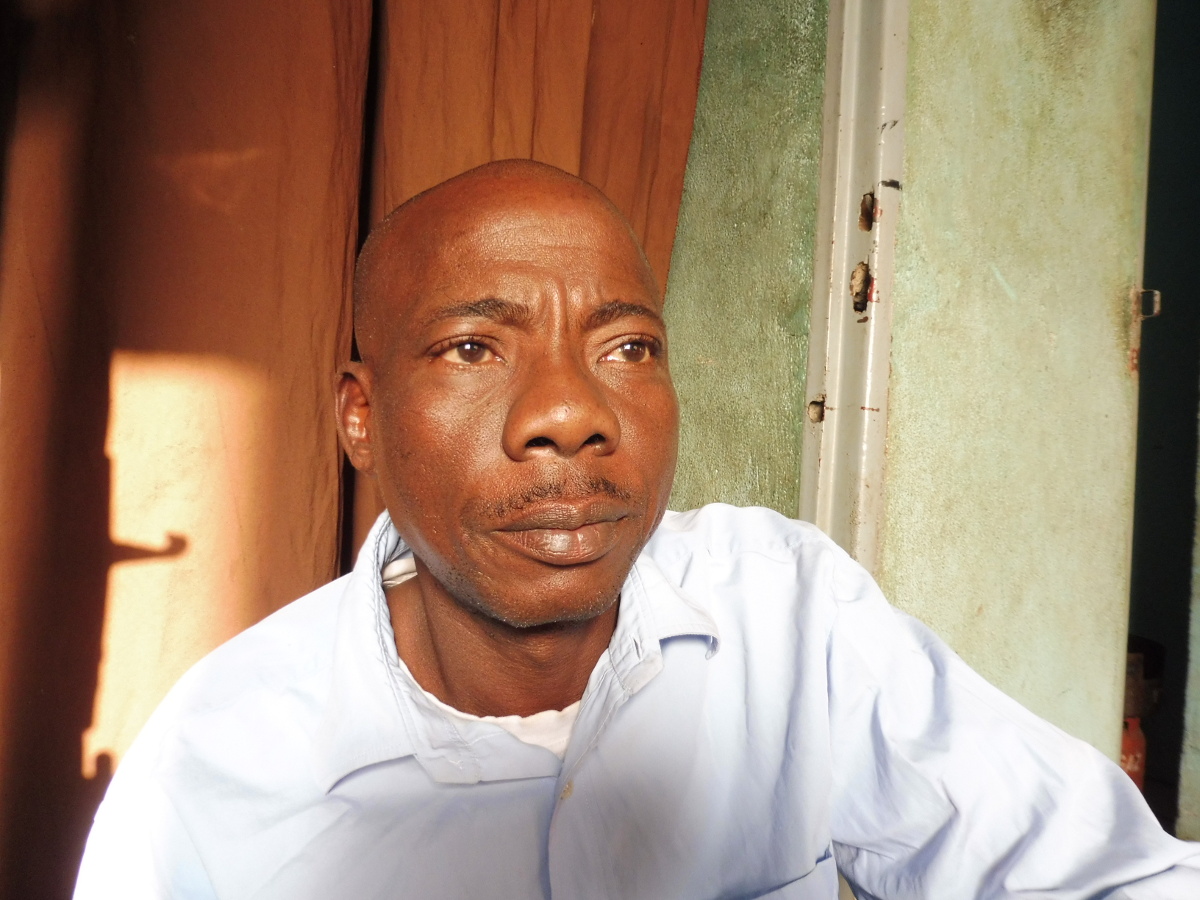
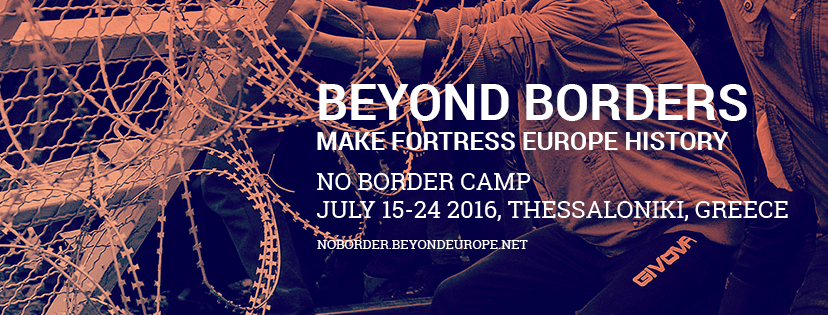 For the circulation of transnational struggles against state, nationalism, patriarchy and capital
For the circulation of transnational struggles against state, nationalism, patriarchy and capital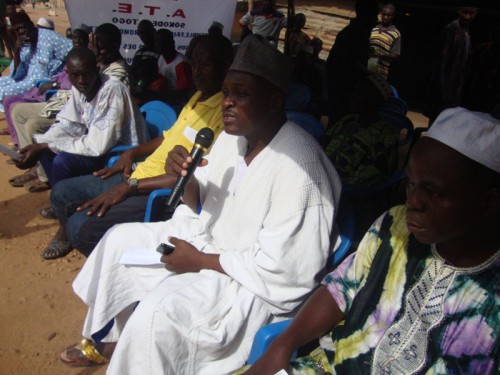 Sokodé is al jaren herkomstland voor migranten. De stad werd oorspronkelijk gesticht door reizigers uit Mali. Een leven als reizende markthandelaar en vervoerder is diep geworteld in de traditie van de Kotokoli-gemeenschap. Sinds de jaren 1990 was Sokodé een centrum van verzet tegen de dictatuur Eyadema. Veel tegenstanders van het regime moesten vluchten en velen werden in de volgende jaren onder andere uit Duitsland gedeporteerd. In de afgelopen jaren kozen veel jongeren in het licht van de desolate economische en sociale situatie in de stad voor de migratie – naar Nigeria, Ghana, Gabon, maar ook naar het noorden, te weten Libië en zelfs Europa.
Sokodé is al jaren herkomstland voor migranten. De stad werd oorspronkelijk gesticht door reizigers uit Mali. Een leven als reizende markthandelaar en vervoerder is diep geworteld in de traditie van de Kotokoli-gemeenschap. Sinds de jaren 1990 was Sokodé een centrum van verzet tegen de dictatuur Eyadema. Veel tegenstanders van het regime moesten vluchten en velen werden in de volgende jaren onder andere uit Duitsland gedeporteerd. In de afgelopen jaren kozen veel jongeren in het licht van de desolate economische en sociale situatie in de stad voor de migratie – naar Nigeria, Ghana, Gabon, maar ook naar het noorden, te weten Libië en zelfs Europa. 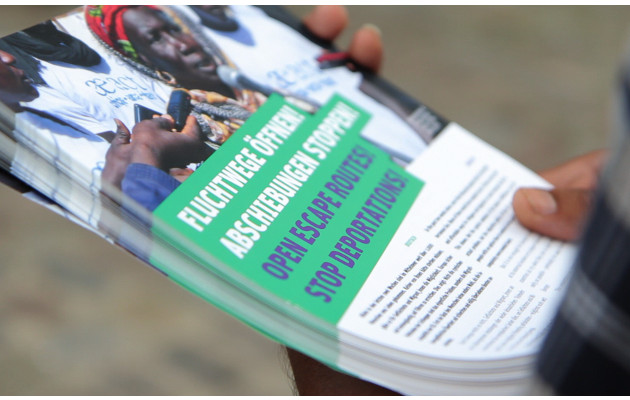
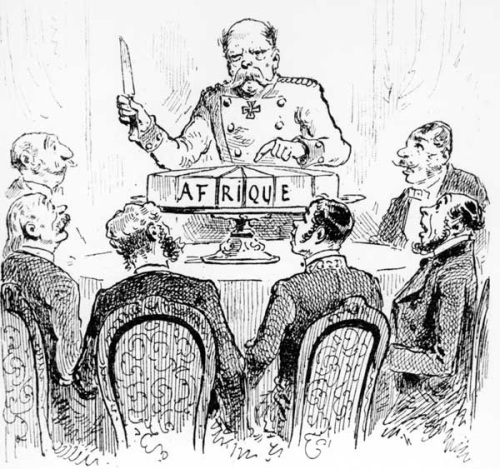

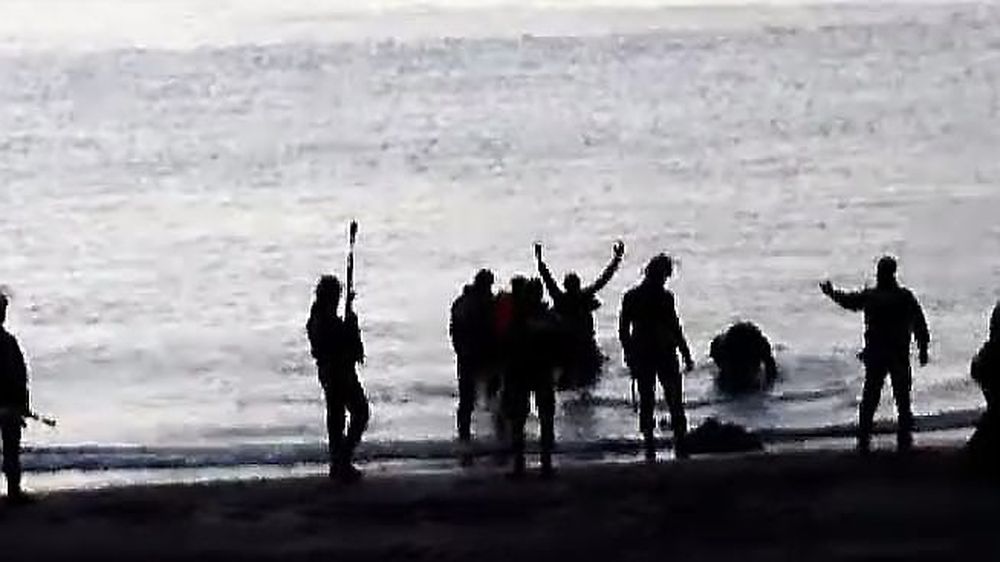
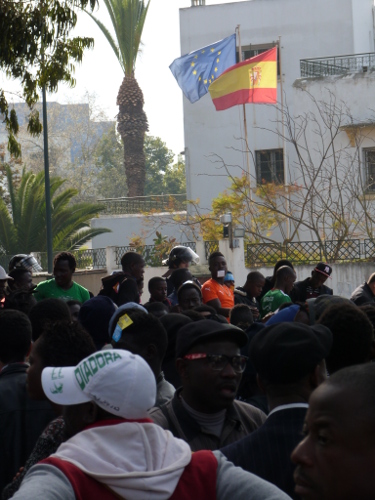
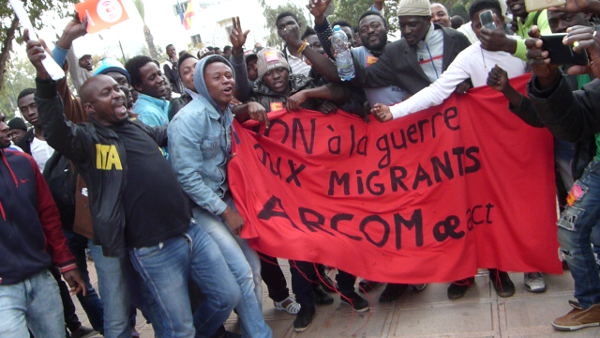
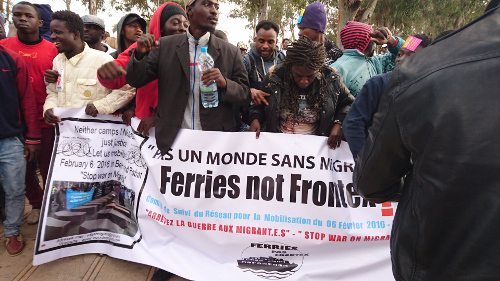 Frontex, agentschap voor Europese grensbewaking, is een militair wapen in de oorlog tegen de migratie. Het beschikt over een arsenaal aan militair materieel en personeel uit alle landen van de Europese Unie en van het Schengengebied. Hiermee wordt middels Rabits (Rapid Border Intervention Teams) zoals onlangs in Griekenland direct ingegrepen daar waar grote groepen migranten plots Europa binnenkomen. Frontex Risico-analyses worden gemaakt om deze flexibiliteit voor te zijn. En zo worden migranten gedwongen gevaarlijkere routes te nemen met alle doden ten gevolge. Maar van enige bijdrage aan de oplossing van het probleem van het vraagstuk is geen sprake. Armoede, corruptie en onderdrukking worden niet aangepakt. Sterker nog, de corrupte staten waar migranten voor vluchten worden gesteund door de Europese staten en Unie. Deze steun is nodig om te komen tot de externalisatie van de grensbewaking. Daar het bewaken van de Middellandse Zee en de landgrenzen van de steeds groter wordende unie nauwelijks te behappen is wordt een buffer buiten de Europese grenzen gevormd. In deze transatielanden dient migratie aangepakt voordat de grens van Europa wordt bereikt. Dat hiermee ook vluchtelingen de kans op asiel ontnomen wordt is meer dan ‘colletaral damage’. Er wordt immers ook voor deze groep geen alternatief geboden voor hun noden en rechten.
Frontex, agentschap voor Europese grensbewaking, is een militair wapen in de oorlog tegen de migratie. Het beschikt over een arsenaal aan militair materieel en personeel uit alle landen van de Europese Unie en van het Schengengebied. Hiermee wordt middels Rabits (Rapid Border Intervention Teams) zoals onlangs in Griekenland direct ingegrepen daar waar grote groepen migranten plots Europa binnenkomen. Frontex Risico-analyses worden gemaakt om deze flexibiliteit voor te zijn. En zo worden migranten gedwongen gevaarlijkere routes te nemen met alle doden ten gevolge. Maar van enige bijdrage aan de oplossing van het probleem van het vraagstuk is geen sprake. Armoede, corruptie en onderdrukking worden niet aangepakt. Sterker nog, de corrupte staten waar migranten voor vluchten worden gesteund door de Europese staten en Unie. Deze steun is nodig om te komen tot de externalisatie van de grensbewaking. Daar het bewaken van de Middellandse Zee en de landgrenzen van de steeds groter wordende unie nauwelijks te behappen is wordt een buffer buiten de Europese grenzen gevormd. In deze transatielanden dient migratie aangepakt voordat de grens van Europa wordt bereikt. Dat hiermee ook vluchtelingen de kans op asiel ontnomen wordt is meer dan ‘colletaral damage’. Er wordt immers ook voor deze groep geen alternatief geboden voor hun noden en rechten.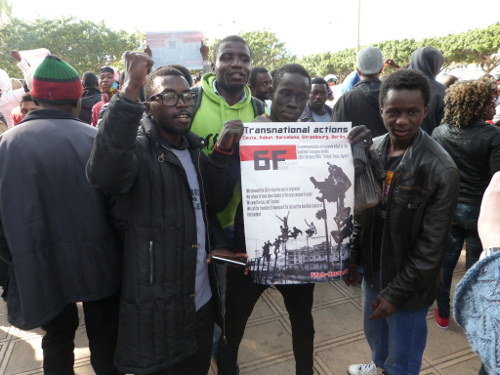 Net als Turkije die nu bijzondere aandacht van de EU krijgt mag Marokko een speciale positie genieten. Het land is zich aan het ontwikkelen van een emigratieland (‘gastarbeiders’) via transitland naar ontvangstland. Het leven van de Sub-Sahara migrant in Marokko is sterk beschreven door Emmanuel Mbolela in zijn boek
Net als Turkije die nu bijzondere aandacht van de EU krijgt mag Marokko een speciale positie genieten. Het land is zich aan het ontwikkelen van een emigratieland (‘gastarbeiders’) via transitland naar ontvangstland. Het leven van de Sub-Sahara migrant in Marokko is sterk beschreven door Emmanuel Mbolela in zijn boek 